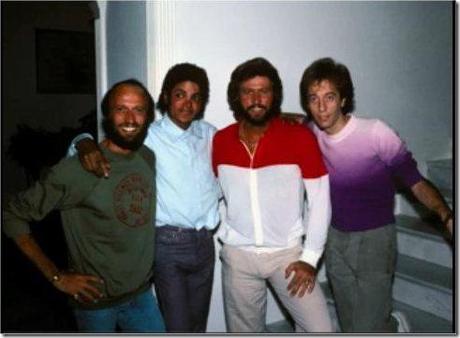
The Bee Gees with Michael Jackson (www.barrygibb.com)
There appears to be a steady stream of sudden deaths among legendary musicians over the past couple of years or so; Michael Jackson, Amy Winehouse, Nate Dogg, Etta James, Whitney Houston, Donna Summer and now, the ingenious Robin Gibb (RIP).
It’s almost as though their deaths are signifying the end of a musical era. It’s a sad thought, but a comfort that each of these artists lives on through their phenomenal contributions.
But there’s a difference between watching a musician grow from early on in their career to listening to them after they’ve passed on.
There’s a real sense of empathy when you are privileged enough to “be there” when that musician releases a record, which is taking its first steps on the charts but is yet to climb great heights. Or even when you’re among the first to hear of the lows – and highs – of their career.
There’s something special about witnessing a moment unfold when an artist wins an auspicious award or gives an interview for the first time and says or reveals something new: you can react to it, instead of hearing about it from the mouths of thousands who heard it before you.
Feel the moment
Instead of reading the whole story in one go after someone has gone, you feel the moments in between the chapters, every word and each letter.
As a child, I grew up listening to Michael Jackson, Whitney Houston and the Bee Gees, in particular. I rejoiced whenever a single was released, wondered how a troubled episode in their lives would unfold and was filled with admiration when they were recognised as people who would go down in history. I watched history being made, instead of once it’s made.
And after they passed on, I not only felt like they lived on through all the songs I still listen to. They are alive in all the memories that are unearthed by their music; as though they provided the soundtrack to the movie that is my life.
People in the present moment and of the future can catch a glimpse of what is left behind. But actual memories of these timeless recordings can be likened to what we miss when we look at photographs: it’s a whole different experience when you’re actually there.
